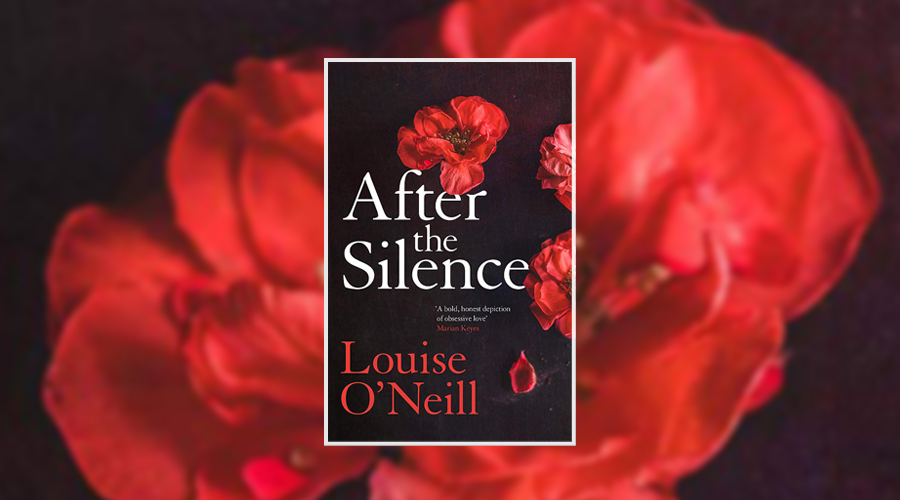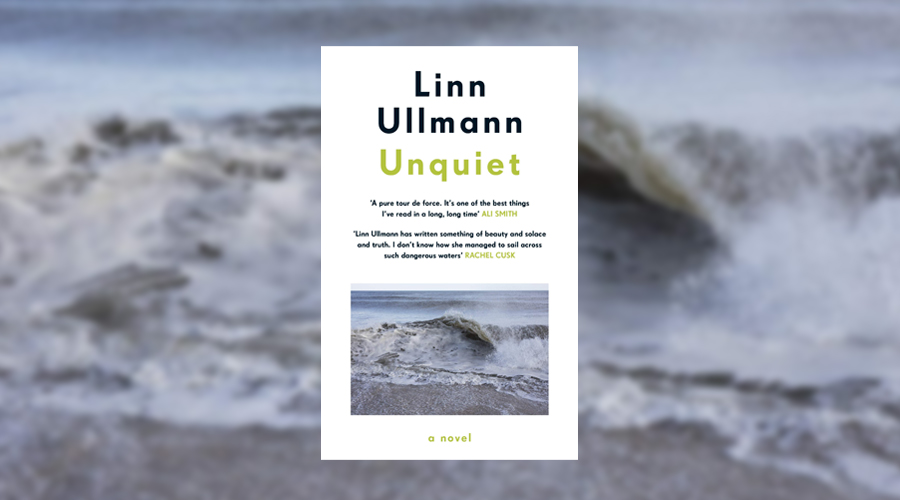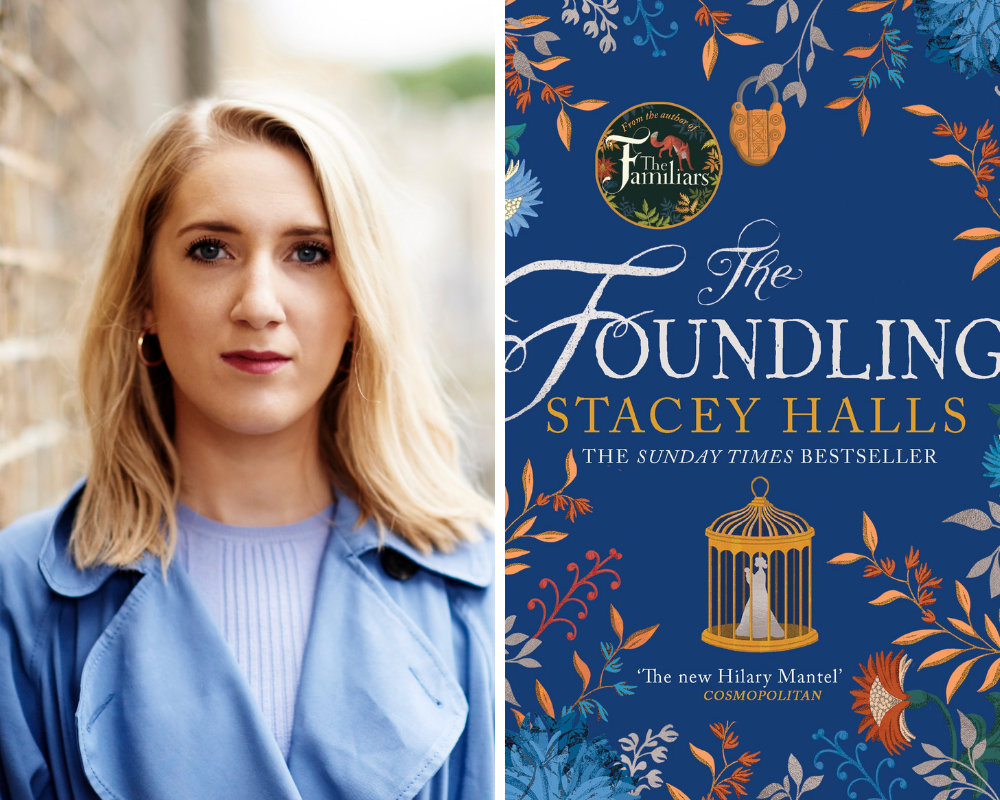Read an extract from After The Silence by Louise O’Neill

Nessa Crowley’s murderer has been protected by silence for ten years. Until a team of documentary makers decide to find out the truth.
On the day of Henry and Keelin Kinsella’s wild party at their big house a violent storm engulfed the island of Inisrún, cutting it off from the mainland. When morning broke Nessa Crowley’s lifeless body lay in the garden, her last breath silenced by the music and the thunder.
It was impossible to get off the island that night. The killer couldn’t have escaped Inisrun, but no-one was charged with the murder. The mystery that surrounded the death of Nessa remained hidden. But the islanders knew who to blame for the crime that changed them forever.
Ten years later a documentary crew arrives, there to lift the lid off the Kinsella’s carefully constructed lives, determined to find evidence that will prove Henry’s guilt and Keelin’s complicity in the murder of beautiful Nessa.
[divider]READ AN EXTRACT FROM AFTER THE SILENCE[/divider]CHAPTER ONE
Keelin Kinsella
‘Everyone on the island knew the Kinsellas. Even before Misty Hill was set up—’
‘Can you briefly explain to us what Misty Hill is, Keelin?’ the young man interrupted, looking up from the camera monitor in front of him. She wondered what she must look like, her body trapped in that small square of glass. An echo of herself, a reflection on water. A shadow. ‘Sorry,’ he said, screwing his face up in apology. ‘It’s just that some of the viewers in the UK might not be familiar with the place.’
Henry wouldn’t like that, she thought. The only name that gets mentioned more than Misty Hill in award speeches is God, was his oft-repeated line at parties, the fifth glass of champagne slurring his voice. The women would gaze at him in a way that made Keelin take a step closer to her husband, call him ‘darling’, remind them that Henry Kinsella was not for the taking, not without a fight anyway. He’s mine, Keelin would think fiercely, taking Henry’s hand in hers. This man belongs to me.
‘Misty Hill was the artists’ retreat centre that the Kinsella family built on the island of Inisrún,’ she said, reaching for the bottle of water that was by her feet. If Evie was here, she would scold her mother for continuing to use single-use plastic. Why aren’t you using that BPA-free container I bought you for Christmas? she would ask, with all the affront a sixteen-year-old girl could muster. Climate change! Marine pollution! The end of the world as we know it, Mum, not that you seem to care. Evie always waited until Henry was in the room before she began the lecture on how her mother was destroying planet earth, and though her eyes never left Keelin’s, it was clear for whom the performance was really intended. Her daughter would pause ever so slightly, giving Henry the opportunity to interject, lavishing praise upon the girl for her sense of civic responsibility. Evie would smile at her mother then, slowly, as if to say, See? I win. Daddy loves me the most.
But Evie rarely came home to the island now. Too difficult, she said. After everything that had happened with the Crowley Girl.
‘Keelin?’ the man behind the camera said. Noah, that’s his name. Noah Wilson. These two men had arrived to Inisrún yesterday, and they’d asked if they could interview Keelin first, before anyone else. Your voice is going to be integral to the whole documentary, Noah Wilson had said, and she tried to pretend that was a good thing. ‘Are you all right, mate?’
‘Yes,’ she said, taking a sip of water. ‘Sorry. The Kinsellas built the artist retreat in the nineties.’ Build it and they will come – that’s the Kinsella way. ‘And the main centre, the place where the residents had dinner and shared their day’s work – that was part of the deal, you see; they had to eat together every night. The Kinsellas wanted to foster a sense of community here, a creative hub where artists could take inspiration from one another – that site was what we would have called Cnoc an Cheo in Irish. There’s mist on the hill, you know.’
Emily Brontë was his favourite writer in school, Henry’s father always said. ‘I dream of moor, and misty hill,’ he recited aloud every time he took the ferry from Baltimore and the island began to emerge on the horizon, rising from the sea like Atlantis. Jonathan Kinsella claimed he had wanted to create something special here, something that would benefit everyone on Inisrún, islanders and artists alike, but he was a businessman too. He had a bottom line to think about. There were always going to be people who would be upset, those who would find fault with his efforts, he said later, but he had done his best. That was some comfort to him, he said.
Jonathan Kinsella refused to return to the island after Misty Hill was razed to the ground and the islanders stood and watched it burn. For days, he would think he smelled smoke; he would wake in the dead of night choking on ashes. And then he’d remember what had happened on the island of Inisrún.
‘Where was I?’ Keelin asked. She often had moments like this, as if her brain had short-circuited, and she lost her train of thought midway through her sentence. It’s just the medication, Henry reassured her when she turned to him, waiting for him to fill in the blanks and guide her home. I’ll take care of you, darling.
‘You were telling us how everyone on the island knew the Kinsellas,’ Noah said, and the man beside him nodded in agreement. Jake, that was the other young man’s name. Jake, with his closed mouth and his doubting eyes. Keelin had a feeling she would need to be careful around Jake.
‘They did,’ Keelin said, crossing her legs and instantly regretting it. Did her skirt ride up, showing too much thigh? Henry had suggested she wear the cream bouclé Chanel suit today; he said it would look respectable. It was important they made the right impression, he reminded her. They wouldn’t get a second chance at this. ‘Obviously.’
‘Why “obviously”? Because it’s such a small island?’
‘Well, yes. But also . . . Look, you have to understand what life was like on Inisrún in the eighties,’ she said. ‘There was no money here. I mean, you could argue that no one on the mainland had money then either, but things were even worse on the islands. We were a problem, most of the time, as much as the politicians liked to rhapsodise about how “precious” the islands were, how we were the “last bastions of Irish culture”.’ She snorted. ‘Being a bastion of culture wasn’t going to feed us, was it? We had to depend on ourselves. The people here tried to lean into the tourism angle and the Irish colleges had only just started up—’
‘Sorry, Keelin,’ Noah said, his hand in the air to slow her down. ‘And the Irish colleges were . . . ?’
‘Schools set up in the Gaeltachts, areas where Irish was still the native tongue,’ she said, trying not to sound impatient. She needed these men to like her, Henry had warned her. ‘Parents would send their children here during the summer holidays so they could immerse themselves in the language. The college on Inisrún had only started in ’86, my mother was a Bean an Tí, one of the first, and—’ Noah winced, sorry, sorry, and Keelin backtracked quickly. ‘Bean an Tí means woman of the house,’ she said. ‘We would have students stay and Mam would cook for them and make sure they spoke in Irish all the time.’
Her mother had been strict with the lodgers, she remembered. There were tears from the teenagers who had been caught speaking in English, threats to send them home to their parents or, worse, have their ketchup privileges revoked at dinner time, nothing to temper the plates of lamb chops and floury potatoes thrown in front of them. That’ll soften their cough, Mam would say. Keelin didn’t like it when her mother yelled, particularly not when it was at the girls from Dublin. Those girls were wild: singing Madonna songs as they danced around the spare bedroom, fixing their tight miniskirts before they left for the céilí, chattering loudly about which one of the local boys they would shift behind the old dance hall that night. Keelin felt self-conscious for the entire summer the Irish-college students were in the house, especially when her mother chatted to her in Irish about the errands she needed Keelin to do, the shifts Keelin had to cover in An Siopa Beag that week, the freshly baked soda bread she wanted Keelin to drop over to Mrs Ní Ghríofa, who was still recovering from the flu; there was talk of bringing the doctor in from the mainland the old lady was so bad. The Dublin girls would stare at them open-mouthed when they spoke, as if they were time travellers from a different era, half stifling giggles whenever Keelin called her mother ‘Mammy’. Mum, she practised in the bathroom mirror afterwards, enunciating the word carefully. Mum.
‘When did the Kinsellas arrive on Inisrún?’ Jake asked, and when their eyes met, Keelin had the strangest sensation of recognition. He knew, she felt. Somehow, this young man knew what had happened to her. What she had done.
‘Henry would be the best person to ask about that,’ she tried.
‘We want to hear it from you, Keelin.’
‘It was a year or so before I was born,’ she said, beads of sweat forming beneath her breasts, dripping slowly onto her stomach. ‘1970, 1971 maybe. They didn’t actually stay here, mind, it was just day trips at first. Henry’s mother was born on Rún, you see. She still had second cousins on the island, and both she and Jonathan, that’s Henry’s father, became very involved in life here. It used to be the priest who would lobby on our behalf, writing letters to the newspaper about how poor the living conditions were, complaining we were being ignored by the government. But before we knew it, Jonathan had somehow become that person for Inisrún, our ambassador, I suppose you could call it. He and Olivia were even here the day electricity was brought to the island.’ An early beacon of hope, they had thought. Let there be light.
‘They bought the old house soon afterwards. Spent a small fortune doing it up was the story around the place.’
‘And what did the islanders think of them?’ Noah asked, still staring at the camera monitor.
‘Oh,’ Keelin said, hoping she sounded suitably vague. Henry could be sensitive about his status as a blow-in; he liked to see himself as half-native at this point, fond of pointing out his mother’s birthright to anyone who asked how he ended up here. She didn’t want to say anything stupid and hurt his feelings. ‘They were different to us, I suppose. Impossibly glamorous, particularly the Kinsella brothers. All of the girls were in love with Henry, and his brother, Charlie, too.’
The islanders would know well in advance when the Kinsellas were on their way. In the early days, Mrs Breathnach, the caretaker’s wife, would have received a letter, which then became a phone call, asking her to have the house ready for their arrival. All the bedrooms have their own toilets! she would tell Keelin’s mother as she picked up milk and butter from the siopa. You’ve never seen the like, Cáit, you’d swear you were in America. The delivery boys picked up the extra messages from the ferry, things that couldn’t be bought in Keelin’s mother’s shop, cardboard boxes with names like Fortnum & Mason and Marks & Spencer stamped across the top. Then, finally, that day in mid-July would be upon them, everyone watching out of the corners of their eyes as the four Kinsellas disembarked from their specially chartered ferry. Jonathan holding Olivia’s hand as she stepped onto the pier, a silk Pucci headscarf covering her ash-blonde hair. The boys followed, Charlie and Henry in Ray-Ban sunglasses, looking like film stars with their thick, auburn hair and blindingly white teeth. Every girl on Inisrún took a collective inhale at the sight of them, but the brothers didn’t seem to notice, barely looking up from their Walkmans as they made their way through the village.
‘Were you in love with the Kinsella brothers?’ Jake asked her, tilting his head to the side.
‘No,’ Keelin said, and she was glad it was true. Somehow, she felt that Jake would be able to tell if she was lying. ‘I thought they were both gorgeous, like, everyone did, but I had a boyfriend, sure. Seán and I—’ She stopped.
‘Seán?’
‘Yes.’
‘Seán Crowley?’
‘Yes,’ she said again.
‘Nessa Crowley’s uncle?’
Keelin shifted in her chair. She didn’t want to talk about Nessa, she didn’t want to even think about her ever again. But all anyone wanted to talk about was the Crowley Girl and what had happened to her that night in the dark.
‘Keelin?’ one of them asked, and she didn’t bother checking to see whether it was Noah or Jake, their Australian accents blending into one. She looked straight down the lens of the camera, allowing herself a rare moment of defiance.
‘Are we done here?’ she asked.
After the Silence by Louise O’Neill is published by riverrun in hardback on 3 September


